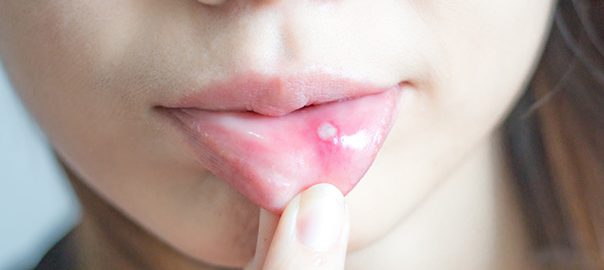
How to Get Rid of Canker Sores?
The canker sore, also known as the aphthous ulcer, is one of the most common oral problems faced by every individual. They can easily be spotted in the mouth and are present in widespread distribution all over the mouth. They start as white to yellowish ulcers, and as they grow, they get surrounded by a red border.
They are small shallow ulcers, usually ranging between 0.5 and 1 mm in diameter. Irrespective of their age, they can occur in any individual at any point in time. Little infants as young as 2 years can also develop these canker sores, but they are usually evident after adolescence.
These canker sores can be painful but are not a major cause of concern for many people besides the discomfort. Dentists or professionals usually discover these canker sores during a regular checkup. They are self-healing and normally heal in a time of 1-2 weeks.
They are of a few types: simple canker sores, complex canker sores, minor canker sores, major canker sores, and herpetiform canker sores. Simple and minor canker sores are the most common and appear at least three to four times a year.
They usually last a week and are most evident between the ages of 10 to 20 years. Complex and herpetiform canker sores are less commonly seen. They are more common in patients who have previously had them. Lastly, major canker sores, as the name suggests, are bigger in size and last more than 2 weeks in an individual.
They often heal with scarring. This article outlines some of the causes, symptoms, and treatment remedies that you can use to get rid of these canker sores.
Causes and Symptoms
The exact cause of the canker sore is still not very clear. Stress or minor injury, certain foods like citric or acidic fruits, and vegetables like lemons, oranges, pineapples, apples, tomatoes, and strawberries can be common causes of canker sores. The use of non-steroidal anti-inflammatory drugs such as ibuprofen can also trigger these canker sores.
Canker sores can be caused by the use of a sharp toothbrush, a sharp tooth surface, a dental appliance, or an ill-fitting denture. These canker sores can also be a manifestation of an underlying health issue such as lupus, or Bachet’s disease, celiac disease, ulcerative colitis, Crohn’s disease, and AIDS.
The most common symptoms associated with a canker sore are irritation and pain. Other than these, a tingling or burning sensation may also be felt prior to the appearance of the ulcer. In severe cases, patients may also experience fever, physical sluggishness, and swollen lymph nodes.
Treatment and Prevention
Canker sores treatment can be divided into two types: home remedies and over-the-counter treatments (OTC). All of these work to reduce the pain, and inflammation, and speed up the healing of the canker sore. Initiating with the home remedies, the first and foremost thing that can be done to prevent these canker sores is to manage the possible triggers.
Aside from mouth rinses and topical products such as tubes and gels, taking oral medication such as sucralfate or oral steroid medication, nutritional supplements, and resolving the underlying health issue are all possible cures for canker sores. If anyone is facing these problems recurrently, they can be prevented by avoiding the triggering agents, avoiding irritation from gum chewing, using a soft-bristled brush, flossing daily, and avoiding the use of oral hygiene products containing sodium lauryl sulfate.
Lifestyle and home remedies: Rinse your mouth frequently using water or baking soda (mix 1 tablespoon of baking soda in half a cup of warm water). Dab a small amount of magnesium a few times a day. For the time being, avoid spicy, acidic, abrasive, and acidic foods. If possible, you can also apply ice to your canker sores. Try to brush as gently as possible until the canker sore heals.
Over-the-counter treatments: Use of oral health products such as antiseptic mouth rinses, this helps reduce the bacteria in the mouth. Oral gels to numb the painful canker sore areas.
Even after all these remedies, if your canker sore does not heal, then it’s time to see a dentist. Call your dentist if a canker sore lasts more than 14 days or even longer, if it seems to get worse, if an unusual growth in size is seen, if you notice frequent outbreaks of canker sores, if they become extremely painful over time, or if they are accompanied by high fever.
Early evaluation and detection can help you ease your discomfort and pain earlier. So do not hesitate and go ahead and get rid of your canker sore because the gift of health is what keeps us alive. So stay healthy and stay happy.
DISCLAIMER:Please note that the prices mentioned on this page: (a) present a range (depending upon the severity of the dental condition, the technology used in treatment, type of dental products used, etc.); (b) are true as on the date of this page and may change on a later date, in accordance with the standard company policy; (c) may be subject to standard aberrations or generalizations on account of the use of AI in general Google/internet search by you.Leave a Reply
Leave a Reply
Explore More Similar Posts
Explore More Blogs


Leave a Reply